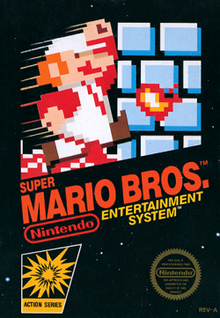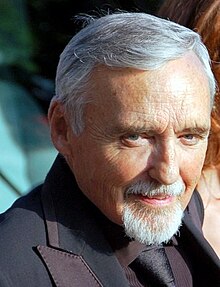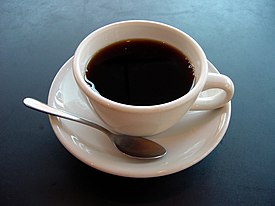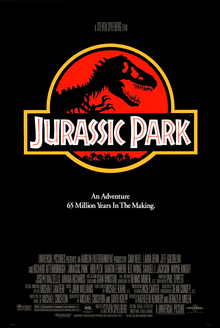On May 28th, 1993, two iconic video game characters named Mario and Luigi arrived on the big screen. With a budget of $48 million, it grossed $20 million domestically, making it a box office bomb. Critics (including Siskel and Ebert) panned the film for being an overblown special effects extravaganza, and fans were outraged with the liberties it has taken with it's source material. It easily could have fallen into obscurity, but with the rise of the Internet, it somehow became a cult film. The people involved in the making of the film began to talk openly about it's troubled production and how the movie went wrong. With stories of script rewrites, on set drinking, and a directing team who are vicious bullies, it's obvious that the movie went out of control and it shows in the finished product. Let's examine the case of Super Mario Bros (1993).
Origins and Casting
The roots for a Super Mario Bros movie goes back to the mid-80's and early-90's, when kids were being crazy for Nintendo games, including the Mario games. Hollywood saw an opportunity to make big-budget film adaptations of video games. In the Fall of 1990, Nintendo surprised Hollywood when they signed a $2 million movie deal to an independent film company called Lightmotive, operated by producers Roland Joffe, and Jake Eberts (no relation to film critic Roger Ebert).
While the company was not well known for mainstream films, their resume is very good. Their best known work was the 1984 Oscar-nominated drama, The Killing Fields, which is a film about genocide in 1970's Cambodia. Their vision for the film was a slightly dark, but still family-friendly adventure film for all ages. To sweeten the deal, Nintendo gave the producers some creative control and the merchandising rights. The Mario franchise seems to be too big to fail. After the deal is over, it's time to find a more responsible creative team and the right cast.
For the role of Mario, Dustin Hoffman and Danny DeVito were considered until the producers picked British actor Bob Hoskins. He was known for critically acclaimed British crime dramas like The Long Good Friday and Mona Lisa (which earned him a 1986 Oscar nomination for Best Actor), as well as Hollywood blockbusters like Who Framed Roger Rabbit and Hook. Hoskins wasn't aware of the games until his son told him. He singed on after reading the script.
After Tom Hanks has been rejected for the role of Luigi due to his career slump, John Leguizamo has been cast for the part. Leguizamo, who has been new to Hollywood at the time, was so excited for the part that he turned down the offer to be in a family sitcom about his life. He felt that he's too good for TV.
For the role of King Koopa, Arnold Schwarzenegger and Michael Keaton were offered the part, but both declined. The role was later given to Dennis Hopper, whose 1969 film Easy Rider gave Hollywood the opportunity make director-driven films between the late 60's and the early 80's. He took the job to entertain his son.
For the role of Princess Daisy, rising actress Samantha Mathis was chosen for the part. Her previous credits include the teen comedy Pump Up The Volume, and the 1992 animated feature, Ferngully: The Last Rainforest. So far, casting was smooth. But then the project is starting to become a nightmare when they were searching for a talented creative team.
Development Hell
One of the first directors considered for the part was comedian Harold Ramis, who know for his acting work in Ghostbusters and Stripes, along with his directing credits with Caddyshack, National Lampoon's Vacation, and Groundhog Day. Ramis wanted to direct the film because he's a fan of the games. But an agreement was never reached with the producers, so he declined.
Greg Beeman was hired as the film's director after he made the 1988 teen comedy, License to Drive, which stars The Two Coreys, Haim and Feldman. But due to his inexperience for tackling big budget blockbusters, he was rejected. "Beeman didn't have the stretch for it" co producer Roland Joffe says.
After Beeman was fired, the producers hired music video directors Rocky Morton and Annabel Jankle. They were inexperienced with the movie business, since their only movie credit was the 1988 thriller DOA, which opened with mixed reviews and lackluster box office results. However, their famous creation was Max Headroom, a cult sci-fi TV show where comedian Matt Frewer plays an artificial intelligence character. Max Headroom was very popular in the 80's, as he appears in Coca Cola commercials and music videos.
The real nightmare begins when it came to write the film. Barry Morrow, known for his Oscar-winning script for Rain Man, was hired to write the script. But the producers realized that his draft was too much like Rain Man, and Morrow refused to make changes. So he was fired from the project.
After Morrow left the project, Jim Jennewain and Tom S. Parker were hired to write the script. Their previous credit was the 1992 comedy Stay Tuned, which starred John Ritter, Pam Dawber, and Jeffery Jones. Their take was a fantasy film and was closer to the source material. In their script, The Mario Bros were on their journey to save a princess, who was kidnapped by King Koopa so he can gain access to the "Crown of Invincibility".
After Lightmotive was happy with the script, Disney picked up the project and green lighted the film under their Hollywood Pictures label. The actors also signed on to that script. But when Morton and Jankel read the script after they were hired, they hated it. They still wanted to make the movie but they envisioned a gritty, futuristic style. After Jennewain and Parker left the project, a new set of writers were hired. They picked up the fantasy script and added sci-fi elements. After Morton and Jankel read the script, they're still unhappy. They envisioned a parallel dimension where the dinosaurs survived and live in an underground city that closely resembles Manhattan and is occupied by King Koopa. The new script was written accordingly. But their work did not please the directors and the studio, so they were fired.
Two more writers were hired and wrote a script that was so action packed, it even contains a Bruce Willis cameo. But Nintendo, the filmmakers, and the producers decided that it was way over the top, so the violence was toned down. At this point, the film strayed too far from the source material and was becoming too dark. To soften the material, more writers have been hired on one condition, they're not allowed to talk to the directors. Rocky Morton and Annabelle Jankel were furious. They were thinking about walking off the set, but decided to stay because production was about to begin. After sets were being built in an abandoned North Carolina factory, production was about to begin in the summer of 1992.
All Hell Is Breaking Loose
When the cast arrived on the set, they were confused. It was a completely different movie that the one they singed up for and nobody told them. In response to their confusion, two of the former writers were re-hired to rewrite the script. The lack of AC didn't help either, as North Carolina has had a very hot summer back in 1992. But the cast and crew have one thing in common, an enemy: Rocky Morton and Annabelle Jankel. In August 1992, Los Angeles journalist Richard Stayton covered the troubled shoot in an article for the Los Angles Times. The article revealed that the cast and crew hated the directors so much they began to make fun of them and call them names. Bob Hoskins was more critical of them. He told his co-star John Leguizamo,"Not all English people are like them. He's a ^*%*, and she's a cow!" He also says that "their arrogance have been mistaken for talent." Dennis Hopper also called them "control freaks". The directors make poor decisions on a regular basis and they were also very abusive.
Of all the behind the scenes anecdotes, the most notorious of them all is between co-director Rocky Morton, an extra, and a cup of hot coffee. According to John Leguizamo, Morton noticed that an extra's costume wasn't ugly enough, so he picked up some coffee that has been sitting around for a while. After he poured it, the extra was injured. Morton allegedly said "Oh well, he's just an extra" and shrugged. In Morton's side of the story, he tried to throw some mud in the costume, which didn't stick. He picked up some coffee and actually asked the extra for permission. When he poured the coffee, the extra screamed and Morton had to find help. Whoever's side of the story you believe in, someone should have told Morton that throwing coffee at an extra is not a good idea. Since then, the cast and crew wore T shirts than contains rude comments on the set.
The constant script rewrites and lack of communication made matters worse. The script changed so many times that the actors were even more confused. One scene originally called for strippers. But when the producers were aware of the this, the scene was changed to nightclub dancing. The cast and crew had to party because they were miserable. Bob Hoskins and John Leguizamo actually consumed shots of Scotch between shoots. This led to one of the most infamous on-set accidents. During the filming of a driving scene, Leguizamo shows signs that he had been drinking and the van almost tipped over. When Hoskins grabbed the door, it slammed his hand very badly. He had to wear a pink cast to match his skin color.
At this point, the film had become a mess. The directors were not allowed to make the movie they would like to make because Disney, Lightmotive, and Nintendo wanted the movie to be more lighthearted and family friendly. After filming had been finished, it was time to edit the film and created the film's computer generated special effects. But the directors were locked out of the editing room. They had to get help from the Directors Guild of America so they can have access. Nintendo didn't care for the movie's quality, but they were confident that it would be successful at the box office because of the Mario name. They were mistaken.
Release and Failure
Siskel and Ebert
After all the behind the scenes turmoil, Super Mario Bros hit theaters in May 28, 1993. Nobody liked it. Fans were outraged with the creative liberties with the source material, and critics panned the film for it's over reliance on special effects and a lack of coherent narrative. Siskel and Ebert called it one of the worst movies of 1993 and it currently holds a a 21% on Rotten Tomatoes, along with a 4.0 out of 10 rating on IMDb. The people involved in the film were unhappy with the finished product and have been haunted by what happened during the filming. This is the second and last movie Rocky Morton and Annabelle Jankel directed, they haven't made a movie since. Dennis Hopper and John Leguizamo didn't care for it either, though the latter warmed up to the film recently. But the film's biggest critic is Bob Hoskins. He called the movie the worst film he had ever been in and regretted taking part.
Two weeks after Super Mario Bros, another dinosaur themed movie called Jurassic Park hit the big screen and opened to much greater success. With it's revolutionary special effects, it became the movie people saw that summer and actually surpassed E. T. to become the top grossing film at that time. Super Mario Bros, along with Last Action Hero, has since been forgotten.
Cult Following
It seems that everyone hates this movie and the film still has it's share of critics today. But in recent years, it has since developed a cult following, thanks to the rise of the Internet. Beginning in the late 2000's, there's an archival, fan-made website about the movie called Super Mario Bros. The Movie Archive. It contains storyboards, production photos, designs, media coverage, interviews, and even early drafts of the scripts that you can read online. If you're a fan of the movie or not, I recommend checking out that website. There's a lot of interesting stuff you can find. Currently, an animated film based on the games is in production. Will it be better than the movie we have, or will it repeat past mistakes? It's a good question.
My Opinion and Conclusion
Having played the games (doesn't matter which one), I can confirm that this is an unfaithful adaptation of the source material. As a movie, it's so over produced and overblown, that all of the special effects and action scenes distract you from the fact that the film lacks a coherent narrative or a contestant tone. The story makes no sense, and he script isn't well written enough to decide what it wants to be. Much like Last Action Hero, this is another movie that was altered so many times during production, it falls flat on it's face. I would be fair on one thing though, of all the movie versions of video games, this is not the worst.
















Although I haven't seen the film,I am certainly impressed with your information and impressions of the movie , Patrick. Congratulations.
ReplyDeleteYou couldn't be more wrong about Last Action Hero.
ReplyDeleteI did my research on that movie by using the filmmaker's accounts. It's a well documented story.
Delete